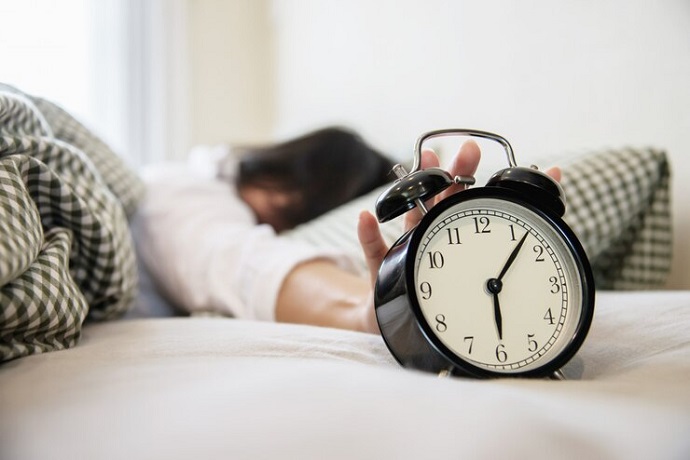
Hypersomnia is a condition characterized by excessive daytime sleepiness that is not caused by sleep deprivation or irregular sleep patterns. Someone with hypersomnia may fall asleep at inappropriate times or find themselves unable to stay awake and alert during the day. It can be a sign of an underlying sleep disorder, medical condition, or neurological problem.
Causes of Hypersomnia
Hypersomnia can be caused by various factors, including sleep disorders like sleep apnea or narcolepsy, certain medications, medical conditions such as depression or obesity, and lifestyle factors like excessive alcohol consumption or shift work.
There are several potential causes of hypersomnia, let’s discuss them one by one. Please share your comments below which of these do you think are the most common causes of hypersomnia.
Narcolepsy
A chronic neurological disorder that causes excessive daytime sleepiness and irregular sleep-wake cycles. It is caused by the brain’s inability to regulate sleep-wake cycles.
Obstructive sleep apnea (OSA)
Brief interruptions of breathing during sleep due to collapse of the airway. This disrupts sleep quality and causes daytime sleepiness.
Restless legs syndrome (RLS)
An urge to move the legs, especially at night, due to uncomfortable sensations. It interferes with sleep and causes tiredness.
Circadian rhythm disorders
Conditions like delayed sleep-wake phase disorder or irregular sleep-wake patterns that disrupt the body’s internal clock.
Side effects of medications
Certain prescription and over-the-counter drugs can have sleepiness as a side effect.
Depression or other mental health conditions
Some psychiatric illnesses and medications used to treat them may contribute to daytime drowsiness.
Medical conditions
Issues like hypothyroidism, neurological problems, and others may manifest as hypersomnia.
How is Hypersomnia diagnosed?
A diagnosis of hypersomnia typically involves a thorough evaluation by a healthcare professional, including a review of medical history, sleep habits, and symptoms.
Diagnostic tests such as polysomnography (overnight sleep study) and multiple sleep latency test (MSLT) may be conducted to assess sleep patterns and rule out other sleep disorders.
Hypersomnia Treatment Options
Treatment for hypersomnia depends on the underlying cause. Common treatment options may include lifestyle modifications (such as improving sleep hygiene), medication (such as stimulants or wake-promoting agents), behavioral therapy, and addressing any underlying medical conditions contributing to excessive daytime sleepiness.
Diagnose and treat any contributing medical conditions or sleep disorders. This may involve CPAP, surgery, supplements, medications and lifestyle changes.
Stimulant medications can help combat daytime sleepiness. Modafinil and armodafinil are often prescribed for narcolepsy and other hypersomnias.
Short naps may temporarily relieve sleepiness but avoid long afternoon naps which can disrupt nighttime sleep.
Sleep hygiene practices and establishing a consistent sleep-wake schedule with bright light exposure help regulate circadian rhythms.
Behavioral therapies like cognitive behavioral therapy for insomnia can improve sleep patterns and daytime functioning.
In rare cases where other options fail, sodium oxybate is used at night to treat excessive daytime sleepiness from narcolepsy.
For mild hypersomnias, limiting sedentary activities, exercising daily, avoiding heavy meals, and managing stress might help.
Treating any underlying mental health conditions will also reduce daytime sleepiness caused by mood disorders or medications.
Finding the Root Cause
A sleep specialist will evaluate your symptoms, medical history and order tests to identify the root cause of your hypersomnia. This may include a nighttime sleep study, multiple sleep latency test, and neurological exams. Pinpointing the issue lets your doctor create an effective personalized treatment plan to relieve excessive daytime sleepiness. Ongoing management is often needed but most people see significant improvement with the right therapies.
Lifestyle Changes help Manage Hypersomnia
Adopting healthy sleep habits can often improve symptoms of hypersomnia. This may include maintaining a consistent sleep schedule, creating a relaxing bedtime routine, avoiding caffeine and alcohol close to bedtime, and ensuring a comfortable sleep environment.
IMPORTANT: While the information provided about hypersomnia treatment is helpful, it’s important to consult with a sleep specialist for personalized advice. If you’re experiencing excessive daytime sleepiness or sleep concerns, consider scheduling an appointment with a sleep doctor. They can provide tailored recommendations to improve your sleep and overall well-being.
Don’t forget to leave a comment below and share your thoughts! And for more helpful tips on health and wellness, be sure to always visit healthyrichman.com.
Photo Credit: https://www.freepik.com/free-photo/sleepy-woman-reaching-holding-alarm-clock_3937735.htm








